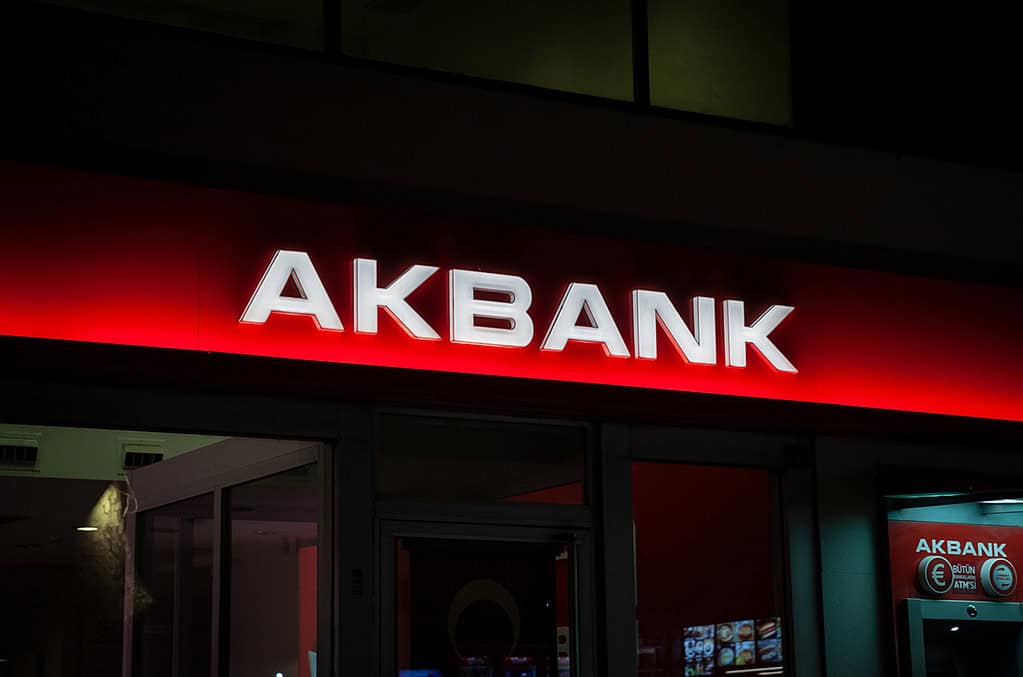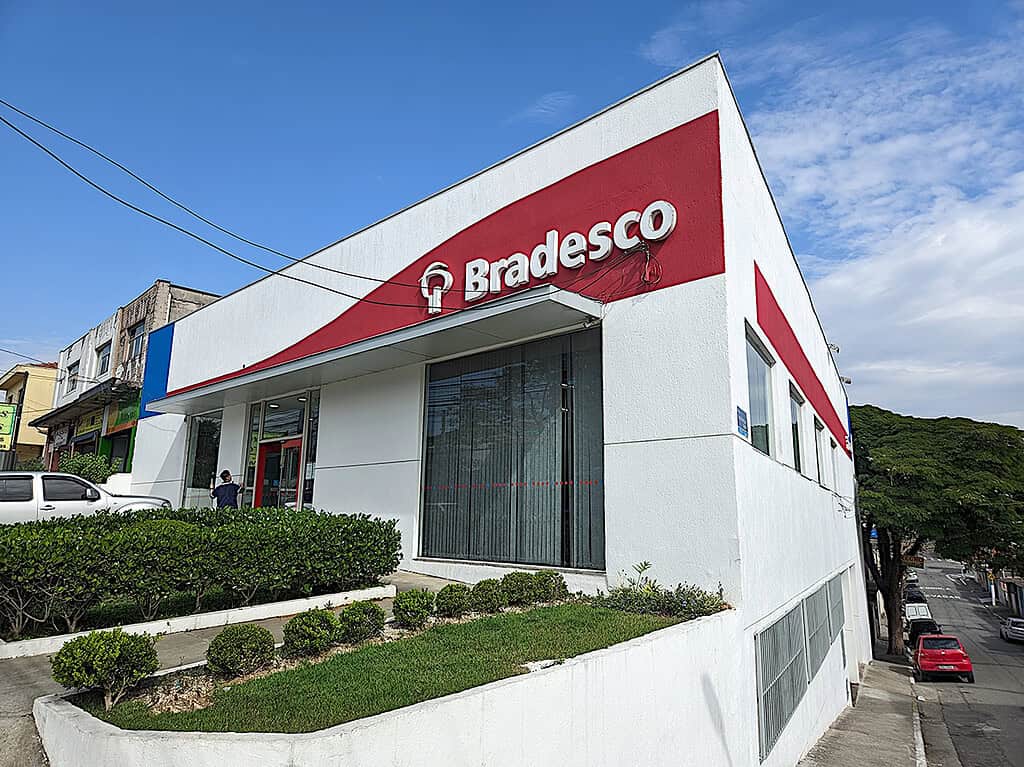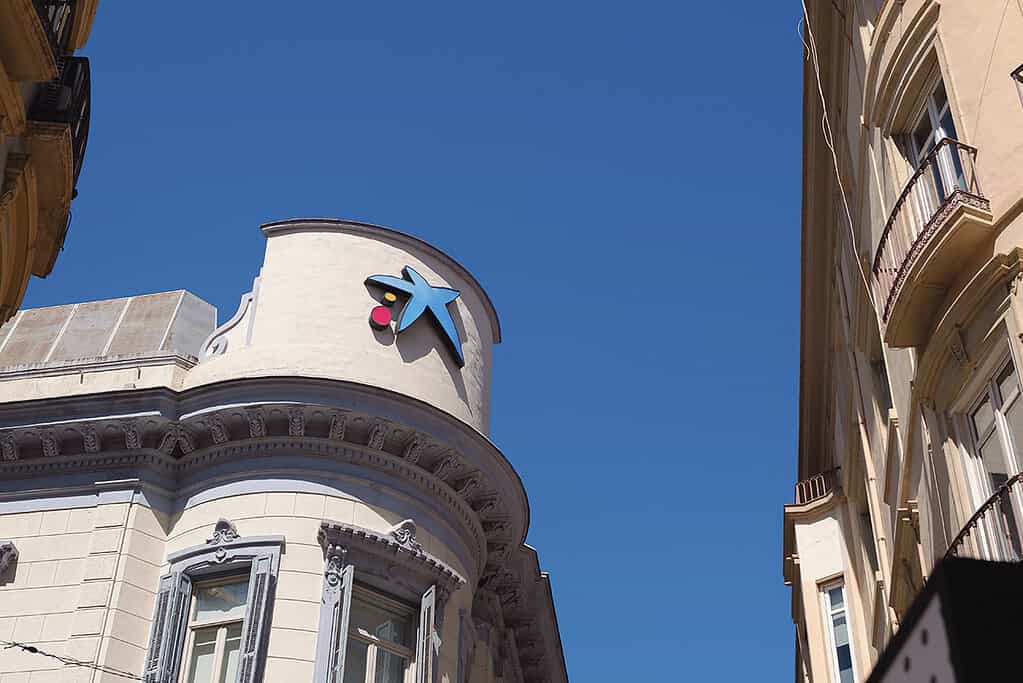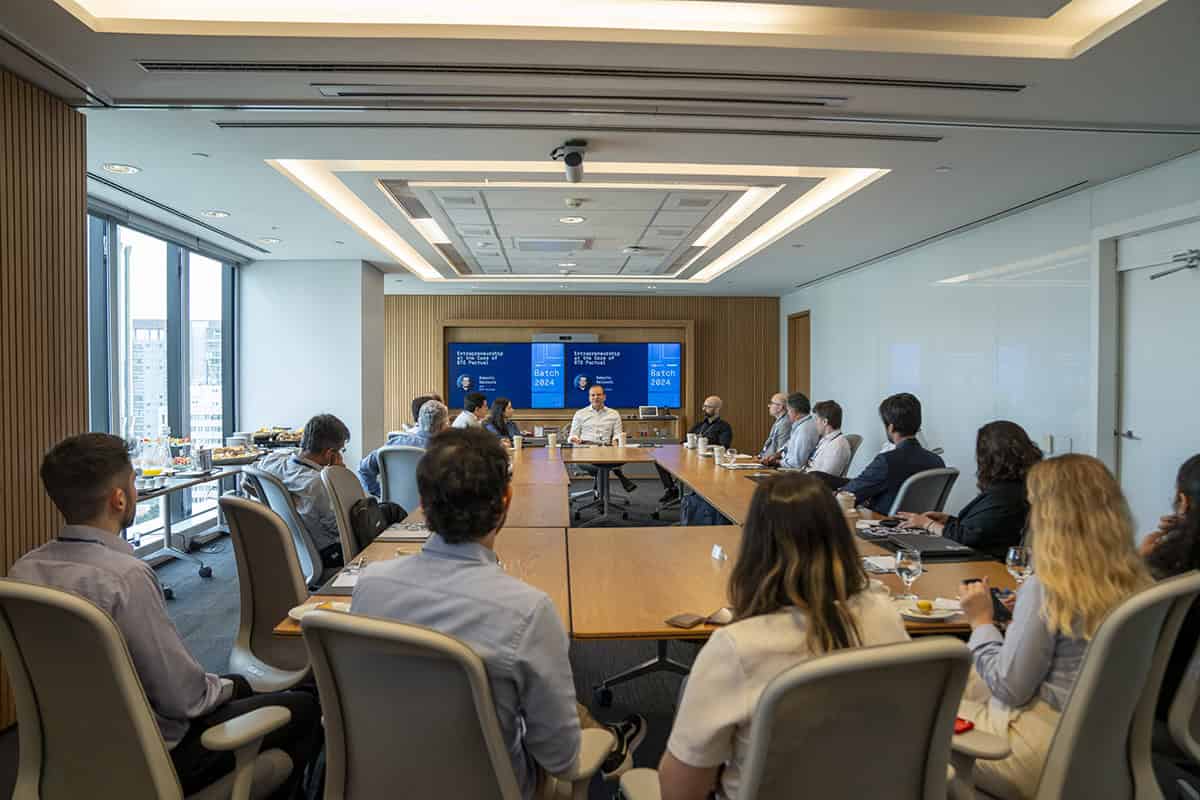Global Finance’s sixth annual list of the world’s best innovation labs highlights the power of collaboration.
In Brazil, the Pix payment system lets people, corporations, and governments transfer and accept funds instantly, 24 hours a day—even when banks are closed. Released in late 2020 by the Banco Central Do Brasil, Pix has been lauded for its convenience and the financial services it provides to Brazil’s significant unbanked and underbanked populations. (Statista reports that more than 9% of Brazil’s adult population remains unbanked.)
But since Pix payments are both instant and irreversible, the innovation has enabled theft, fraud, and other crimes. Countering this fraud is just one of the topics tackled over the past year by the world’s best fintech innovation labs, incubators, and accelerators. Other technological innovations from these labs address everything from improving anti-money laundering (AML) compliance and easing underwriting processes to speeding up customer onboarding and improving cash management for small and midsize enterprise (SME) clients.
Victor Tanure, new-business manager for the Data Rudder data intelligence company, is most concerned about Pix fraud.
According to Data Rudder research, one in six Brazilians has been a victim of a Pix scam. Pix-based crimes run the gamut. People have been kidnapped and forced to use their mobile phones to remit irreversible payments to the kidnappers. More common are “social engineering” scams (involving use of false social media profiles, particularly on WhatsApp, to impersonate the victim), the creation of credit card clones, and the theft of mobile devices that give criminals access to the Pix user’s credentials and cash. Although Pix and credit card insurance often reimburse victims, it’s not enough. According to a Data Rudder survey, 46% of victims get no money back. Concurrently, 63% of respondents believe it is the bank’s responsibility to reimburse them for these thefts. It’s not.
To solve this problem, boostLAB, which is powered by BTG Pactual, accelerated Data Rudder.
BTG Pactual created boostLAB in 2018 to help the bank become a destination for tech companies banking in Latin America. This acceleration-and-investment program is part of the bank’s early-stage venture capital (VC) strategy. In 2023, the lab honed its focus to concentrate on startups between seed and Series A funding stages. This move aligns with BTG Pactual’s desire to collaborate with companies that have already validated their products in the market and that possess a scalable business model. The lab, which had previously nurtured 76 startups, invested 500,000 Brazilian reais (approximately $91,000) in each of the six startups accelerated last year. In exchange, BTG Pactual received 3% equity.
In a nod to the fantastic technology of the sci-fi film “Back to the Future,” the Data Rudder artificial intelligence (AI)-powered anti-fraud solution is called DeLorean, after the time-traveling car in the film. It analyzes Pix transactions conducted through Data Rudder’s more than 100 client institutions in Brazil. DeLorean determines the legitimacy of these transactions based on the user’s historical spending patterns, among other factors, and determines—in less than 200 milliseconds—whether the transfer is likely legitimate and should be allowed. Verification processes need to be that quick to detect and halt possibly fraudulent transactions faster than Pix can process them.
Tanure credits boostLAB with helping his company tailor its innovation for a specific, much-needed purpose. “We had automated machine-learning technology. We could have applied the DeLorean to stop churn, to solve KYC [know-your-customer] problems,” he says. Working with boostLAB, Data Rudder chose to focus on preventing Pix fraud.
“We gave Data Rudder a structure of mentorship,” says Gabriela Lima, VC director at BTG Pactual. “Our fraud prevention director at BTG Pactual was having weekly or biweekly meetings with Data Rudder in order to access the platform, do some tests, and connect them with people at Brazilian banking organizations. We helped them with some commercial initiatives and product development. [DeLorean] didn’t start as an anti-fraud solution. Data Rudder was very deep in machine learning, big data, and predictive analytics for several business issues. We helped them focus on Pix as instances of fraud soared.”
Partnering For Innovation

Let’s look at what’s brewing at other fintech innovation labs worldwide.
As illustrated by work at Akbank LAB, Arab Bank Innovation Hub, EFG EV Fintech, the National Bank of Kuwait, and Morgan Stanley Inclusive Ventures Lab, the Middle East and North Africa region (MENA) is a hotbed of fintech innovation.
Founded in 2016, Turkey’s Akbank LAB wants to be the technology partner of choice for innovative tech startups worldwide. Its 10-week accelerator program, “Boost the Future,” which is in its fifth year, helps entrepreneurs scale their businesses. Thus far, 64 startups have graduated from the lab. While the lab offers no direct investment, Akbank often becomes a paying customer of these startups. Investment opportunities are sometimes available through the bank’s VC arm.
Akbank’s lab enables it to deliver offerings to customers more quickly. Lab professionals evaluate lab applicants for their offerings’ alignment with the needs of each Akbank business unit. Accelerated processes mean that proof-of-concept (POCs) for new products are usually developed within six months, compared to a typical two-year timeline. Innovations from the lab include products to speed up and automate loan paperwork and a single-dashboard solution for monitoring AML processes—including sanctions screening.
Additional lab components include Akbank+, an internal innovation program for bank employees to develop ideas for potential new technological solutions for use in the bank; and the Case Campus boot camp for students who want to explore entrepreneurship; and hackathons. Disaster tech was the theme of the lab’s most recent hackathon.
Arab Bank Innovation Hub was founded in 2018 to accelerate the development and adoption of disruptive technologies within Reflect Neobank, its fully digital bank. The hub has several locations—including in Aman, Cairo, and Dubai—and several arms. Among those arms is AB iHub, a program that germinates new ideas by facilitating collaboration among Arab Bank employees and startups. Here, fintech startups transform bank employees’ raw ideas into financial services prototypes.
As part of the lab, AB Xelerate (formerly AB Accelerator), the VC arm of Arab Bank, funds the acceleration of emerging technologies for adoption within the financial institution. Its goal is to expand or disrupt financial services for Arab Bank clients. Through this accelerator, AB iHub has tested more than 30 POCs and pilots and entered into a dozen commercial collaborations. Innovations have focused on supply chain financing for SMEs, AI-powered document verification and authentication, digital onboarding, and blockchain and its application to KYC compliance.
Finally, AB iHub hosts the Artificial Intelligence and Advanced Data Analytics Academy. Here, bank employees use AI and data science to create products for anomaly detection, deposit stickiness (predicting clients’ future deposit balances), and lead tech (generating actionable customer leads).
EFG EV Fintech is the brainchild of EFG Finance (a wholly owned subsidiary of EFG Hermes Holding) and Egypt’s government-backed VC fund, Egypt Ventures. The micro-VC accelerator seeks out and supports fintech companies. EFG EV Fintech says it boasts the country’s largest fintech portfolio. Companies nurtured operate in the insurance tech, regulatory tech, agricultural tech, digital banking, and SME-lending sectors. In addition to offering accelerated companies investments ranging between $25,000 and $500,000, EFG EV Fintech provides workspaces, mentorship, legal advice, and other services.
The National Bank of Kuwait (NBK) Group Digital Office, established in 2021, focuses on delivering digital excellence in bank operations in that country, along with its bank operations in Egypt, Saudi Arabia, the United Kingdom, and France. The lab focuses on innovations in digital product design, data analytics, digital marketing, and project management. While primarily an in-house operation, the lab does a small amount of work with outside startups. These startups provide specific components for lab innovations, notably components for personal finance management and identity verification products. Notable work includes deploying analytics to extract actionable bank insights from complex data sets. According to NBK officials, this process helps boost customer acquisition and optimize product cross-selling.
Digital innovations such as the Weyay digital bank and app have arisen from the lab. Weyay is the first digital bank in Kuwait. Its services are geared to young people.

Scaling Up
Morgan Stanley Inclusive Ventures Lab is a five-month accelerator designed to scale startups in the seed to Series A funding rounds. It strives to nurture companies led by traditionally underrepresented populations, including women and people of color. Launched in 2017, it has since worked with founders in the Middle East and companies in Africa and Europe. The lab provides these companies access to investors and the tools and resources they need to scale. The lab has thus far nurtured 92 companies, with portfolios exceeding $923 million. Capital investment from Morgan Stanley in each startup is either $250,000 out of the New York–based program or £250,000 (about $322,000) out of the London office, depending on the startup’s location, in exchange for 5% equity in each company. The lab culminates with a demo day during which participants present to a network of investors, potential business partners, and customers.
Asia has seen significant innovation from DBS Asia X (DAX).Hosted by DBS Bank, DAX is one of Singapore’s largest innovation centers. In its 16,000-square-foot coworking space, DBS employees, startups, and the broader fintech community come together to innovate. The lab has three aims: to engage with the startup community, to develop and foster a culture of innovation within the bank, and to serve as a customer-experience hub. The lab concentrates on several technological areas: AI, data science, immersive media, and the Internet of Things.
Among the most significant components of the lab is the Startup Xchange program, matching startups with DBS project teams that focus on emerging technologies. Among innovations from the lab is the Jobs Intelligence Maestro, Southeast Asia’s first virtual bank recruiter. Powered by AI, the solution addresses the time-consuming, repetitive tasks faced by the talent acquisition department at DBS. The innovation automates the short-listing of candidates for bank jobs. Talent acquisition professionals need only to review the short list when choosing candidates for face-to-face interviews. DBS estimates that the platform saves 40 professional work hours each month, allowing recruiters to focus more on candidates most qualified for the jobs advertised.The lab also regularly runs hackathons and workshops to spur innovative ideas.
In Europe, Alior iLab for Fintech (formerly RBL_START) is a startup accelerator for companies in the finance and insurance sectors that have already developed a minimum viable product. Alior Bank’s iLab program focuses on nurturing companies that can help the Polish bank improve its products and services, optimize its processes, increase revenue, reduce costs, and create new business models. The lab offers startup mentoring, access to customers and partners, and the opportunity to test solutions in a banking environment. Over its six years of operation, the lab has nurtured more than 60 startups. Alior’s corporate venture capital arm has directly invested in two of them. Innovations in mobile banking, online and app-based payment, invoice management, and online currency exchange are some of the products that have arisen from the lab.
Online cash management tools have also been the focus of recent innovations in South America. Based in southern Brazil, Ailos Cooperative is a financial network comprising 13 member credit unions representing over 6,000 employees and serving more than 1.6 million members. This network strives to provide innovative financial services to its members and customers. Its innovation lab, founded in 2018, is a distinct area within the network. It explores innovation management, technological innovation, change management, digital transformation, and more. It has thus far nurtured 69 startups in its Blumenau Innovation Center. Sistema Ailos does not offer direct investment in these companies. Instead, startups that offer products matching the network’s needs can become suppliers. One innovation that arose from the lab was Financial Manager Ailos 360°. This digital financial system lets users control their bank accounts and financial planning simply and intuitively. It integrates accounts from various financial institutions into one platform, giving customers a complete view of their finances and assisting them in financial planning and decision-making.

Serving SMEs
The Banco Bradesco inovabra lab was launched in 2013. It offers a physical and digital co-innovation environment, serving over 200 resident startups and 1,500 that are connected. Its Inovabra Fund invests in startups aligning with bank operations through a 100% owned capital vehicle of Bradesco called FIP Inovabra. The fund’s investments range from 20 million to 75 million Brazilian reais for a minority share in the companies nurtured.
Innovations to arise from this lab include the cash flow management tools for microbusinesses and SMEs from software vendor Asaas, which lets clients manage their cash flow through a single financial dashboard. Clients use the dashboard to view all receivables and receipts, along with their respective status (due, overdue, paid), and obtain several other services. In addition, the bank launched a “credit as a service” solution, allowing e-commerce sites and enterprise resource planning programs used in many businesses to offer working capital and microcredit to their clients directly from the platform.
Additional labs of note include those hosted by Fidelity. Innovations at Fidelity come from two arms. The first is a research unit called the Fidelity Center for Applied Technology. The center has recently started a fellowship program through which it works with selected external startups.
The second arm is the Fidelity Labs incubator for new software businesses and commercial solutions.
Also doing significant work are Barclays Eagle Labs, BNY Mellon Enterprise Innovation Group, BofA Breakthrough Lab, Citi Innovation Labs, Deutsche Bank Innovation Labs, Elevator Lab powered by Raiffeisen Bank International, ING Labs, OTP Bank Innovation Lab, TD Lab and TD Workshop of TD Bank Group, Up2Stars/Intesa Sanpaolo, Visa Global Innovation Center, Wenov by Attijariwafa, and Yapi Kredi FRWRD.
Stopping Financial Crime
At some financial institutions, innovation is germinated by staff. For example, in Asia, CTBC employees have worked hard to stop mule accounts. These are bank accounts used to facilitate illegal activities such as fraud and money laundering.
Founded in 2018, the CTBC Data and AI R&D Center in Taiwan employs more than 200 people. It strives to leverage technology in transforming financial services to better meet customer needs. Areas of focus include document tech, verification tech, marketing tech, data tech, regulatory tech, and investment tech. Divisions include the Blockchain Laboratory, improving blockchain processes for corporate clients; the UI/UX Laboratory (user interface and user experience), focusing on providing solutions to meet customer demands in retail banking; the Computer Vision Laboratory, dedicated to image-recognition and processing technologies; and the Natural Language Processing Laboratory, which focuses on semantic understanding.
AI is a significant part of these endeavors. “By integrating decision AI and generative AI [GenAI] technologies, CTBC Bank aims to maintain its leading position in the financial technology field, offering customers more intelligent, personalized, and efficient financial services and standing out in a highly competitive market,” says Friedman Wang, a CTBC executive vice president and head of its AI R&D division.
Products to arise from the center include AI Skynet, an innovation that made CTBC the first bank in Taiwan to collaborate with the National Police Agency. This joint effort combats fraud using smart, AI-powered platforms at the bank’s network of more than 7,000 ATMs.
Wang reports that, in the 2023 fiscal year, scam losses among consumers in Taiwan amounted to approximately 89 billion Taiwan new dollars (about $2.8 billion), numbering more than 37,000 scam cases. However, that figure may be much higher: It is believed that only a little more than half of the victims in Taiwan report scams to the police.
Among these scams is the creation and use of mule accounts that place a degree of separation between the criminal organization and illicit funds, making it difficult for law enforcement to track the money.
Enter AI Skynet. “AI Skynet [was] mainly introduced to prevent and detect mule account holders involved in financial scams. The total number of reported mule accounts has grown at a compound annual growth rate of 35% over the past two years in Taiwan, which has resulted in a significant concern in the industry,” Wang says.
The innovative use of AI Skynet has significantly enhanced the bank’s fraud detection capabilities at ATMs. According to Wang, “Massive historical data are used to train the AI to recognize abnormal behaviors and predict the likelihood of a customer being reported as the mule account holder.” AI Skynet has also significantly improved operational efficiency at CTBC, providing a 70-fold increase in the number of suspicious ATM transactions monitored, without any increase in staffing.
Additional innovations arising from the Internal Data and AI R&D Center include AI Cheque Check, which strives to streamline the check-deposit processes by using advanced AI to read traditional Chinese characters for speedier verification (In AI, the recognition of Chinese characters is considered much more difficult than the recognition of Latin scripts).

European Innovations
At Spain’s CaixaBank, the internal Customer Experience LABs and Insights Center are a research hub. Several new projects have recently arisen from the lab. Among them is a digital onboarding capability for corporate legal representatives. This innovation was developed to accommodate foreign companies that wish to do business in Spain. Previously, these companies needed a Spanish legal representative to appear in real life for corporate registration processes. To ease processes for foreign corporations, CaixaBank developed a digital pathway for corporations to register legal representatives without requiring those representatives to appear at a physical branch. This process complies with all registration regulations set by Spain’s financial intelligence agency.
Personal loans are another area of innovation. In January, the bank launched a fully digitalized contracting process for personal loans, providing customers with immediate access to loans upon completing the application.
SEBx is the laboratory arm of the SEB Group, owner of the leading corporate bank in the Nordic countries. In 2023, the bank completely redesigned SEBx to engender lab innovations that reshape the future of finance. Thus far, the lab has built a highly skilled 16-member internal team, formed a broad external collaboration group, and begun spearheading GenAI adoption for SEB Group.
The lab plans to use AI innovations to foresee and prevent financial crimes, including fraud and money laundering; to understand, model, and predict financial systems, enabling more-informed business decisions; to create a hyperpersonalized customer experience; and to make banking a driving force in creating a sustainable and resilient society.
One POC that came out of the lab is the automation of customer authentication. SEBx notes that most existing customer-authentication processes are binary: Customers are either completely authenticated and have access to all available funds, or they are not authenticated and have access to nothing. By combining multiple data points for identification, SEBx has created an application that takes a more nuanced, risk-based approach to identification and authentication. It grants gradual access rights for viewing and acting on accounts based on the customer’s identification score. SEBx believes this solution will better serve customers while improving security.
Innovations Continue In MENA and North America
Bank ABC is based in the Kingdom of Bahrain. It founded ABC Labs in late 2019 to help the bank fulfill its goal of becoming MENA’s leading “digital bank of the future.” Reaching that goal entails deploying strategic initiatives to futureproof the bank’s operations and offerings. As a result of these efforts, ABC has already developed a cloud-based, mobile-only offering called, ila Bank, and its AI-powered digital assistant, Fatema.
More recently, ABC Labs rolled out an enterprise-wide innovation program. This program is designed to enable business growth, increase agility and efficiency, improve skill sets throughout the organization, and strengthen brand equity.
Innovations to emerge from the lab include a solution developed with JPMorgan Chase and the Central Bank of Bahrain to enable institutional clients to remit high-value cross-border payments instantly, 24 hours a day. In addition, a new portal provides a digital, cloud-based gateway for corporate clients to access cash management, trade finance, and supply chain financing services.
Arising from Moody’s banking innovation team is the Automated Credit Memo, a new application combining GenAI with other technology, data, and analytics to help bank underwriters working for Moody’s customers to create comprehensive credit memos more easily. Moody’s officials note that the preparation of credit memos is “a process known for its time-consuming nature. In response, we leveraged [GenAI] to … streamline this process significantly. By enabling the generation of comprehensive credit memos with a simple click, this tool can reduce the time required for their preparation by more than half, offering substantial efficiency gains.” In addition to automating manual processes, the Automated Credit Memo helps create a standard and consistent narrative for all credit memos written in an organization, regardless of author or loan complexity. Its market release is slated for this year.
A second arm of the company, Moody’s Generative Intelligence Group, uses the power of AI and machine learning to build solutions that create internal and external efficiencies. Most recently, the group explored how to apply GenAI to Moody’s extensive propriety data, resulting in Moody’s Research Assistant.
“The inception of Moody’s Research Assistant was driven by the goal of simplifying the process of finding relevant insights for our clients,” the officials add. “Engaging in conversations with [more than] 100 customers, we sought to deeply understand their specific report-creation and analysis needs. This dialogue helped us identify the crucial data and insights required by our customers, ensuring that the Research Assistant was tailored to meet these needs effectively. As a result, this tool can facilitate a more efficient credit analysis, peer comparison, data gathering, and report-building process, potentially saving customers up to 27% of their time.”
The Research Assistant offers a comprehensive view of various risk domains, including credit, climate, cyber, compliance, and supply chain risks. It generates “new insights using Moody’s extensive research, data, and analytics. By rapidly synthesizing large volumes of information, it allows for quick data analysis, development monitoring, entity comparison, insight discovery, and workflow automation. This efficiency transforms research tasks that previously took days into minutes, significantly freeing time for strategic decision-making and in-depth analysis,” the Moody’s officials add. The Research Assistant is available as an add-on to CreditView, Moody’s flagship ratings and research solution.
Additional internal labs of note include Bancolombia Innovation Center, BBVA AI Factory, Capital One Lab, CIB Innovation Group, Goldman Sachs – GS Accelerate, Mastercard – Labs as a Service, and PayPal Innovation Labs.
Non-Bank Innovations
Venture capitalh firms and consultancies understand the value of fintech innovation. No wonder they host a variety of fintech labs. Among the most notable are Accelerator Frankfurt, Deloitte Catalyst, Plug and Play, Startup Bootcamp, Startup Wise Guys, Synechron, and Y Combinator.
Some fintech innovation labs work to improve economic and social conditions, and some go where no one has gone before.
The European Investment Bank Group (EIB) is the world’s largest multilateral financial institution, owned by the 27 European Union member nations. In 2023, the bank financed €19.8 billion (just under $22 billion) of investment as well as digital and human capital in innovation. Its mission is to close the gaps in innovation goals and skills identified by EU policymakers. To do so, it provides expert advice and customized solutions to public and private sector clients. Advisory work covers the innovation, energy, transportation, digitalization, and social infrastructure sectors. Solutions include designing sustainable infrastructure projects, assisting businesses with financial structuring, and advising on environmental and social impact assessments. In all its work, the EIB strives to ensure that investments align with EU policy objectives, particularly those that promote sustainable development worldwide.
Enter the EIB’s Space Finance Lab. It is the first lab offered by EIB to have a specific thematic focus. It aims to address the need for bank investments that bolster European strategic autonomy in space exploration. The lab provides a safe place for thought leaders and space-technology practitioners to exchange know-how and discuss their needs. Over several years, the Space Finance Lab has brought together representatives of the EIB, the European Commission, the European Space Agency, the EU Agency for Space Programmes, 10 banks, and 50 emerging European space companies. These gatherings create a bridge among these organizations, enabling them to dive more deeply into space technology’s challenges, share knowledge, and develop new financial products for the space industry.
Most significantly, the Space Finance Lab combines the acumen of the investors with the knowledge of the experts, ultimately addressing the financing and growth challenges of companies and disrupting the typical framework in which they raise financing. Sessions have focused on financing in the European space industry, upstream activities (transportation of objects into space, operation of ground stations, and space exploration), and downstream activities (handling data generated by the upstream activities). The sessions resulted in a clear list of objectives and follow-up actions that will be the starting point for the next Space Finance Lab, slated for late 2024.
Meanwhile, back on Earth, the Brazilian Financial Innovation Lab is a think tank that promotes the financing of socially and environmentally sustainable projects. Operating primarily online, it is an initiative of the Brazilian Development Association, the Inter-American Development Bank, and the Brazilian Securities and Exchange Commission. It was created in 2017. Its members include more than 359 public and private entities—including government ministries, financial market regulators, insurance and capital market institutions, public and private companies, and fintechs. Its fintech working group promotes open innovation projects in fields such as crypto assets and solutions for using data to identify and solve environmental, social, and governance challenges.
Similar efforts are taking place in Colombia. After the 2021 social unrest and protests in that country, the Association of Banking and Financial Institutions of Colombia (Asobancaria) began identifying ways to better serve the banking needs of diverse populations, groups, and territories. The Asobancaria Social Innovation Lab is part of this effort. Its goal is to build and maintain communication channels and active collaboration between different segments of society and the banking sector, mainly promoting financial inclusion of vulnerable populations and underserved territories. The lab works with women, seniors, youth, rural populations, ethnic groups, migrants, disabled groups, and the LGBTQ+ community. It strives to provide financial and credit alternatives to these populations.
Important components of the lab are “opportunity fairs.” These fairs target individuals living in moderate-to-extreme poverty who cannot access the formal financial system, introducing citizens to new financial products developed especially for their socioeconomic group. Eight of these fairs took place last year. A second group of fairs, dubbed MiPymeLab, strives to connect small entrepreneurs with financing services.
Other significant social and economic development labs include Copenhagen Fintech Lab, Cyberport, the Dubai International Financial Centre’s DIFC Fintech Hive, FinTech Innovation Lab, and Seoul Fintech Lab.
Meanwhile, some innovation centers are unaligned with banks, VC firms, or economic development organizations. Among these is the Boston-based MassChallenge, a 501(c)(3) accelerator supporting early-stage startups. Its program offers mentorship, training, office space, legal advice, and access to funding. The Lisbon-based Beta-i helps new and established businesses grow by providing innovation services in acceleration, corporate innovation, and education. Frankfurt’s TechQuartier caters to fintechs and other types of startups. It offers a broad partner ecosystem. Additional independent labs of note include Accenture’s Fintech Innovation Labs and Tenity.
Methodology
Our initial call attracted entries from innovators touting their achievements at the global, regional, and local levels. Global Finance also received nominations for the top innovation labs of the year from correspondents and external sources. The editorial board evaluated entries and nominations and vetted them with independent research. Winners were selected following rigorous debate.
| FINANCIAL SERVICES COMPANY LABS (Working With External Startups and Scaleups) |
| AB iHub – Arab Bank |
| Akbank Lab |
| Alior Bank/Alior iLab |
| Alios Cooperative |
| Banco Bradesco inovabra |
| Barclays Eagle Labs |
| BNY Mellon Enterprise Innovation Group |
| BofA Breakthrough Lab |
| boostLAB Powered by BTG Pactual |
| Citi Innovation Labs |
| DBS Asia X (DAX) |
| Deutsche Bank Innovation Center |
| EFG EV Fintech |
| Elevator Lab powered by Raiffeisen Bank International |
| ING Labs |
| Morgan Stanley Inclusive Ventures Lab |
| National Bank of Kuwait Group Digital Office |
| OTP Bank Innovation Lab |
| TD Lab & TD Workshop of TD Bank Group |
| Up2Stars/Intesa Sanpaolo |
| Visa Global Innovation Center |
| Wenov by Attijariwafa |
| Yapi Kredi FRWRD |
| FINANCIAL SERVICES COMPANY LABS (Internal) |
| ABC Labs/Bank ABC |
| Bancolombia Innovation Lab |
| BBVA AI Factory |
| Capital One Lab |
| CIB Innovation Group |
| CTBC Data & AI R&D Center |
| Customer Experience LABs/CaixaBank |
| Fidelity Center for Applied Technology/Fidelity Labs |
| Goldman Sachs – GS Accelerate |
| Mastercard Labs as a Service |
| Moody’s |
| PayPal Innovation Labs |
| SEBx (SEB Group) |
| Accenture’s Fintech Innovation Labs |
| Beta-i |
| Mass Challenge |
| TechQuartier |
| Tenity |
| Accelerator Frankfurt |
| Deloitte Catalyst |
| Plug and Play |
| Startup Bootcamp |
| Startup Wise Guys |
| Synechron |
| Y Combinator |
| ECONOMIC DEVELOPMENT LABS |
| Brazilian Financial Innovation Lab (LAB) |
| Copenhagen Fintech Lab |
| Cyberport |
| DIFC Fintech Hive |
| European Investment Bank/Space Finance Lab |
| FinTech Innovation Lab |
| Seoul Fintech Lab |
| Social Innovation Lab/Banking and Financial Associations of Colombia |





















